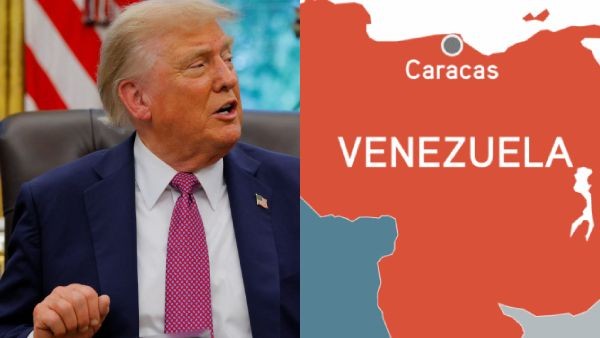
Washington, D.C. — In a fiery statement that has escalated diplomatic tensions, President Donald Trump has called on Venezuela to “immediately accept” individuals he claims were forcibly sent into the United States from prisons and mental institutions. The remarks, delivered in a social media post on Saturday, allege that the Venezuelan government has released dangerous individuals into the U.S., resulting in harm to American citizens.
“We want Venezuela to immediately accept all of the prisoners, and people from mental institutions, which includes the Worst in the World Insane Asylums, that Venezuelan ‘Leadership’ has forced into the United States of America,” Trump wrote. “Thousands of people have been badly hurt, and even killed, by these ‘Monsters.’ GET THEM THE HELL OUT OF OUR COUNTRY, RIGHT NOW, OR THE PRICE YOU PAY WILL BE INCALCULABLE!”
The statement has sparked widespread debate, with critics questioning the veracity of the claims and calling for diplomatic restraint, while supporters argue that the administration is taking a firm stance on border security and national safety.
Background and Context
The comments appear to reference long-standing concerns about migration patterns from Latin America, particularly under Venezuela’s authoritarian regime. While there is no publicly verified evidence that Venezuela has systematically deported prisoners or psychiatric patients into the U.S., similar claims have circulated in political discourse since 2022.
Immigration experts note that the vast majority of Venezuelan migrants arriving in the U.S. are fleeing economic collapse, political persecution, and humanitarian crises. Many have sought asylum through legal channels and have no criminal background.
Diplomatic Fallout
Venezuela has not yet issued an official response to the statement. However, analysts warn that such rhetoric could further strain relations between Washington and Caracas, which have been tense for years due to sanctions, diplomatic isolation, and ideological differences.
Human rights organizations have urged both governments to prioritize humanitarian considerations and avoid inflammatory language that could stigmatize vulnerable populations.
As the situation unfolds, international observers are watching closely to see whether the U.S. will take further action or whether diplomatic channels will be used to address the concerns raised.
